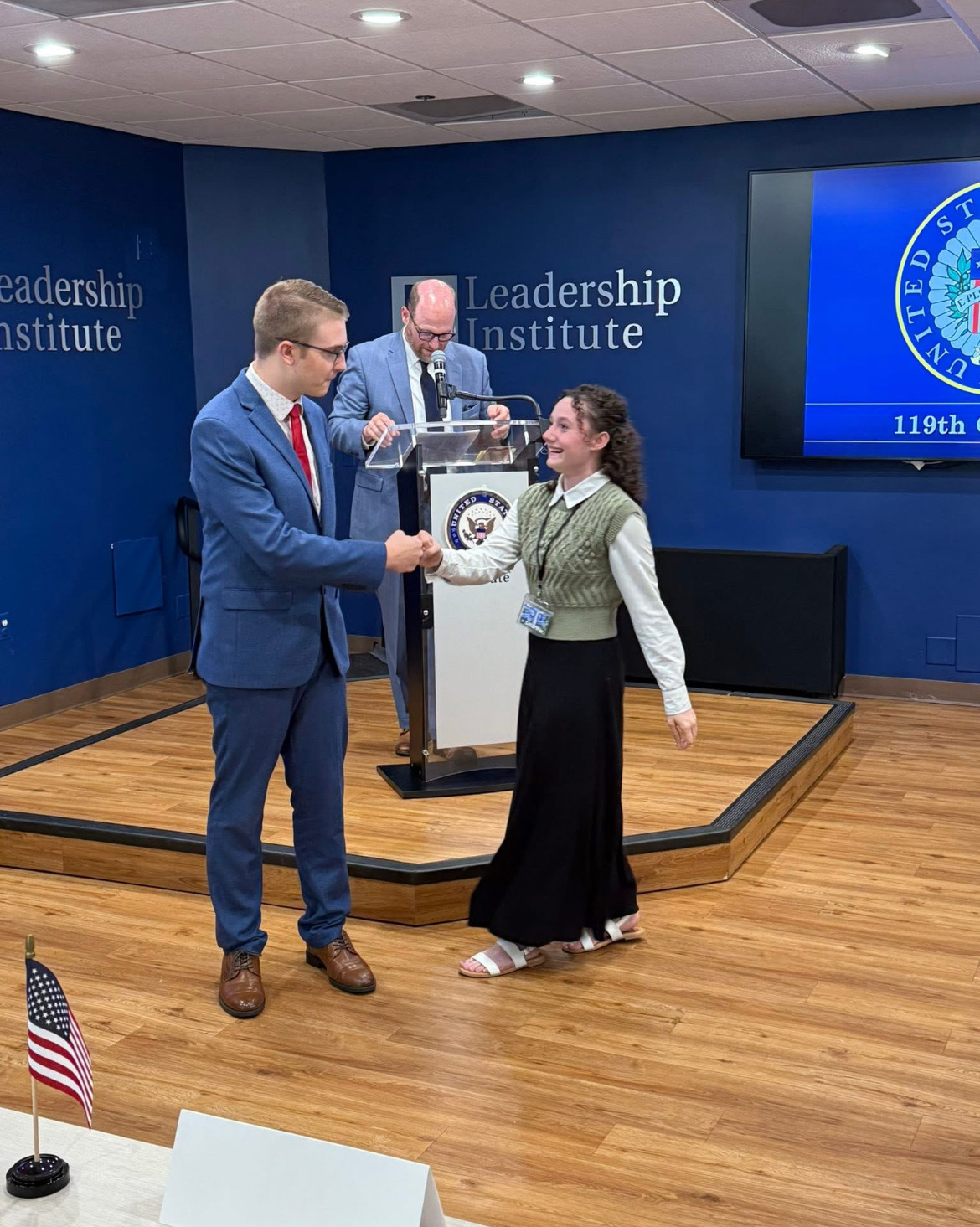A Flickering Yet Faithful Light
Signs of Gospel Renewal in an Age of Secular Drift

Surveys of Generation Z’s spiritual landscape paint a sobering picture: declining religious affiliation, shrinking church attendance, and growing secularization. Churches, particularly those historically identified with evangelical Christianity, report diminishing engagement among the emerging generation. In many settings, the faith that once shaped families, communities, and cultural assumptions has faded to a distant background note.
Yet the truest stories are rarely told by data alone. Beneath the surface of cultural drift, there are signs—not of mass revival, but of quiet, steady renewal. Amid widespread disillusionment with institutions, ideologies, and personal autonomy itself, a growing minority is turning not merely toward tradition or nostalgia, but toward the historic, transcendent claims of the gospel. It is a movement largely unnoticed by the broader culture. It is small, serious, and shaped not by emotional fervor but by theological conviction. And it offers a glimpse of what Christian faithfulness might look like in the post-Christendom world now unfolding.
The Collapse of Nominal Christianity
The decline of religious affiliation among young people is real and well-documented. A 2025 Pew Research Center study found that only about 45% of Generation Z identifies as Christian, continuing a steep trajectory that began with millennials (Pew Research, 2025). Yet the kind of Christianity that is declining matters profoundly. It is not convictional, cross-bearing discipleship that is collapsing, but nominal Christianity—a cultural residue long disconnected from deep belief or serious practice.
As Tim Keller wisely observed: "Nominal Christianity is dying. But convictional Christianity may be growing stronger under the surface." Russell Moore has made similar observations: as Christianity loses its cultural privileges, those who continue to follow Christ will increasingly do so at real personal cost—and from real personal conviction. This great shaking is painful. Yet in God’s providence, pruning often precedes fruitfulness (John 15:2). In the clearing away of cultural Christianity’s remains, space is being made for something sturdier to grow.
A Wider Disillusionment
The collapse of easy religiosity coincides with broader disillusionment across culture. In recent years, researchers have noted a striking ideological shift, especially among young men. Polls from Gallup and Pew Research in 2023 and 2024 reveal that young men are increasingly moving toward political conservatism, even as young women continue to trend toward progressive views (Gallup, 2024). Articles in outlets like The Wall Street Journal and Axios trace this realignment to growing dissatisfaction with societal trends: the breakdown of family stability, the erosion of objective moral norms, the vilification of healthy masculinity, the rise of cancel culture, and the exhaustion produced by expressive individualism.
Faced with the failures of a society that promised limitless freedom but delivered loneliness and fragmentation, many young men are searching for something more stable. Some reach toward political ideologies that promise order, rootedness, and permanence. Yet politics alone cannot satisfy the human heart. At best, it diagnoses some cultural sicknesses. It cannot heal the disease of the soul. It cannot forgive, redeem, or promise resurrection.
Where political frustration stirs a deeper hunger—one not merely for order but for righteousness—there is fertile ground for the gospel. And in the lives of some young men and women, that is exactly what is happening: disillusionment is becoming an unexpected doorway into divine grace.

A Rising Hunger for the Word
Another sign of spiritual disturbance is the remarkable surge in Bible engagement. In 2023 and 2024, HarperCollins Christian Publishing and Tyndale reported record-breaking Bible sales, much of it driven by young adults. The YouVersion Bible App similarly recorded unprecedented levels of global engagement, with Generation Z contributing significantly to its growth.
Purchasing or downloading a Bible does not itself indicate conversion. Yet it suggests an essential openness—a willingness to search for something older and more enduring than personal preference. In a culture accustomed to curating every experience, the Bible offers something profoundly different: truth received rather than created. Many may begin their search merely with curiosity. Yet through the Word of God—living and active, sharper than any sword (Hebrews 4:12)—some will be confronted, convicted, and drawn into a kingdom that cannot be shaken (Hebrews 12:28). Where Scripture is opened seriously, the Spirit often works deeply.
Gospel Depth Over Spiritual Consumerism
Among those coming to genuine faith, a notable seriousness marks their belief. Gone is the shallow Christianity that promised therapeutic uplift without repentance. Gone is the moralistic deism that reduced God to a distant life coach.
In its place, a growing number of young Christians are embracing a faith that demands all and gives more than all—a gospel centered on the lordship of Christ, the necessity of repentance, and the power of resurrection. They seek churches where the Scriptures are taught systematically and reverently. They value membership covenants, historic confessions, rigorous catechesis, and the ordinary means of grace. They are not drawn to a Christianity that offers them a platform, but to one that calls them to carry a cross.
The New Mission Field: Digital Discipleship
The pathways into serious faith today often run through unexpected places. Recognizing the opportunities presented by digital spaces, leaders like Gavin Ortlund have transitioned from traditional pastoral roles into broader theological ministries online. Through his Truth Unites YouTube channel, Ortlund offers careful apologetics, biblical exposition, and historical reflection to thousands of seekers—many of whom might never set foot in a church before encountering serious Christian teaching online.
He is part of a larger movement: The Bible Project translating theology into visual storytelling, TikTok apologists presenting clear gospel summaries in sixty seconds, and podcasts like Knowing Faith offering robust, accessible theological dialogue. These digital ministries are not substitutes for the embodied life of the church. But they are vital frontiers: sowing seeds, answering questions, and tilling hearts toward deeper engagement. When wisely stewarded, they serve as front doors into gospel community.

Green Shoots Across the Ocean
The United Kingdom offers a sobering but hopeful preview for American Christians. Throughout the latter half of the 20th century, Britain underwent a rapid secularization. State churches emptied. Public Christianity retreated. Faith became privatized, then marginalized, then increasingly regarded as irrelevant.
Yet in the very ashes of cultural Christianity’s collapse, new shoots of authentic evangelical renewal have appeared. Multiethnic, biblically faithful churches are growing, especially in urban centers. Small groups of serious Christians are gathering—not because it is socially advantageous, but because Christ is worth everything.
Sociologists like Stephen Bullivant (Mass Exodus) and historians like Philip Jenkins (The Next Christendom) have chronicled how secularization’s apparent triumph was never complete. The seeds remained. America appears to be following the UK’s trajectory, about a generation behind. The cultural power of Christianity is waning. But cultural power was never the source of Christianity’s true strength. Where the gospel is clearly preached and faithfully embodied, renewal remains possible—even, and perhaps especially, in a post-Christian society.
The Field Is Being Tilled
The soil of American culture today is rocky, uneven, and increasingly hostile to public faith. But it is also being tilled. The disruption of old assumptions, the collapse of inherited identities, the hunger for real meaning—these disturbances are not simply losses to be mourned. They are also opportunities.
Bible sales alone are not revival. Digital engagement alone is not discipleship. But each question asked, each search begun, each longing exposed may be a step toward grace. The fields are not yet white for harvest. But neither are they barren.
Christ Will Build His Church
In the end, our confidence does not rest in cultural trends, political shifts, or technological innovations. It rests in a Person. And in a promise:
"I will build my church, and the gates of hell shall not prevail against it." (Matthew 16:18)
Christ’s kingdom is not fragile. His Word is not fading. His Spirit is not dormant. Even now, amid the tumult of a crumbling secular order, He is gathering His people, one by one, often unseen by the world but never unnoticed by heaven. The light still flickers. And it is enough.
Sources:
- Pew Research Center. (2025). A shift in Christianity across the U.S. may continue as Gen Z ages.
- Gallup. (2024). The Widening Gender Gap in Political Ideology.
- Wall Street Journal. (2023). The Growing Gender Gap in Politics.
- Stephen Bullivant. (2019). Mass Exodus: Catholic Disaffiliation in Britain and America.
- Philip Jenkins. (2011). The Next Christendom: The Coming of Global Christianity.
- Gavin Ortlund, Truth Unites YouTube Channel.
- HarperCollins Christian Publishing, Tyndale, YouVersion (Bible engagement reports 2023–2024).

HGN Staff
His Good News magazine seeks to unite and empower parents, educators, legislators, and voters in West Virginia to support and advance Christian education, religious freedom, and conservative values. By fostering a strong Jesus-based foundation within our communities, we can influence legislation, protect religious freedoms, and ensure that our children receive a quality Christian education.















